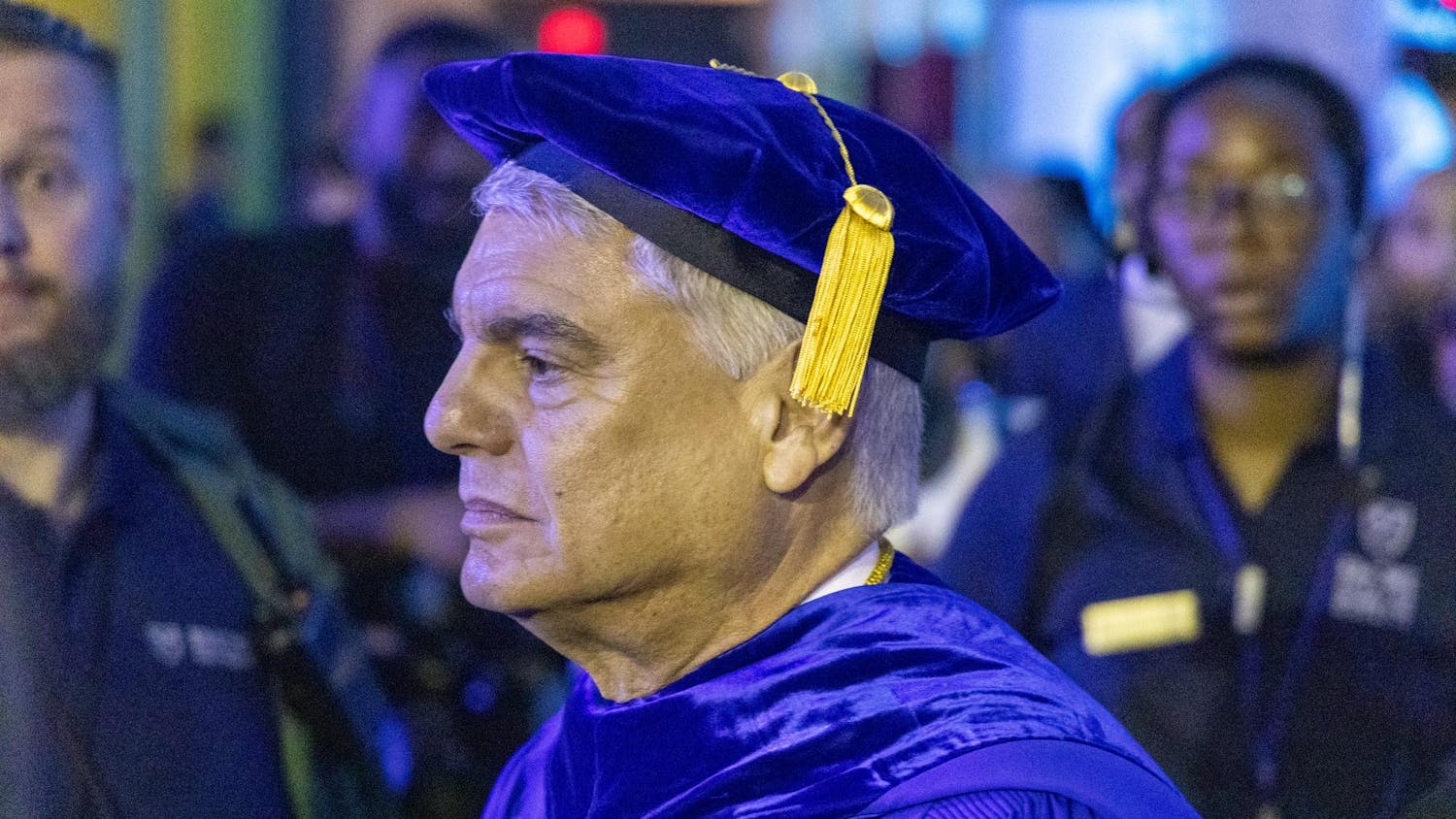Content Warning: This article contains references to suicide.
The Biden administration hosted the first White House Campus Press Briefing of the academic year on Sept. 25. Press Secretary Karine Jean-Pierre and White House Communications Director Ben LaBolt spoke at the virtual event, which focused on college affordability, climate change and mental health.
College affordability
LaBolt said that U.S. President Joe Biden is committed to “fixing” the student loan system and making college more affordable. This comes after the Supreme Court of the United States struck down Biden’s loan forgiveness plan in a 6-3 decision on June 30. The plan aimed to cancel $10,000 in student loans for individual borrowers making less than $125,000 per year or households making less than $250,000 per year. Students who received a Pell Grant in college and met the income threshold were eligible for up to $20,000 in debt relief.
“The president remains committed to giving as much debt relief to as many borrowers as possible as quickly as possible,” LaBolt said.
The Biden administration launched the Saving on a Valuable Education (SAVE) Plan, which bases monthly payments on borrowers’ income and family size, on Aug. 22.
According to the plan, a recipient making less than $30,000 a year will have no monthly payments until their income surpasses $30,000. Those earning more than $30,000 will still save $1,000 a year compared to other income-focused repayment plans.
“Four million borrowers are already enrolled in the SAVE plan, including many of your school’s alumni,” LaBolt said.
Additionally, the Biden administration has canceled $45 billion in loans for public servants, such as teachers, under the Public Service Loan Forgiveness program, according to LaBolt. The program forgives all debt for any public servants who have already made at least 10 years’ worth of monthly payments.
President Biden is aware of concerns about college affordability and is working to help as many people as possible, LaBolt said. “The president has your back and he won't stop fighting to bring the promise of affordability to more students and families,” LaBolt said. “You can expect more actions of forgiveness to be announced in the coming weeks as well.”
The Biden administration is also responsible for “the largest increase in Pell Grants in over a decade,” LaBolt said. The grants, which are not repaid, are awarded to undergraduate students with high financial need. About 19% of Emory University students receive Pell Grants.
The Biden administration announced another $9 billion in student loan forgiveness on Oct. 4, which will be distributed through the already existing plans helping people with disabilities submit relief forms, the Public Service Loan Forgiveness plan, and students who never received debt relief they were promised and have been working for at least 20 years.
When asked about the president’s plans to support higher education institutions following the Supreme Court knocking down affirmative action, Jean-Pierre said that Biden has invested over $7 billion into historically black colleges and universities (HBCU). This funding will help the communities that have been affected by the Supreme Court decision, according to Jean-Pierre.
“He believes that HBCUs are certainly the center of academic excellence,” Jean-Pierre said.

Climate change
The Biden administration launched the American Climate Corps on Sept. 20. The program will train 20,000 young people to fight the “climate crisis,” training them to use and disseminate clean and efficient energy technology as well as restore and protect U.S. land and water, LaBolt said.
Under the Inflation Reduction Act, which was passed and signed in 2022, the United States is aiming to cut greenhouse gas emissions by half by 2030, which LaBolt called the largest investment in climate history.
Biden is also working to protect public lands and waters, establishing five new national monuments, according to LaBolt. He added that the president has protected over 21 million acres of public lands and waters, and is projected to conserve more than any other president.
“[Biden] is on track to conserve more lands and waters than any president in history,” LaBolt said.
White House Associate Communications Director Maria Michalos addressed concerns about the Supreme Court’s decision to limit the U.S. Environmental Protection Agency’s (EPA) ability to regulate air pollution, noting that the EPA released a proposal in May that would reduce carbon dioxide emissions by 600 million metric tons through the year 2042.
“The Supreme Court may have limited some of the creativity with which the EPA can address power pollution from power plants but it did not restrict its ability overall to address emissions from the power sector,” Michalos said.
Biden is also using his authority under the Defense Production Act to ensure the U.S. is “supercharging” domestic clean energy manufacturing, Michalos added.
Mental health
Biden has proposed a regulation, which is currently being evaluated, to require insurers to provide better access to mental health care, according to LaBolt. He noted that the Biden administration is “hopeful” that the regulation will be finalized and implemented soon.\
The president is also investing $200 million into the National Suicide and Crisis Lifeline, 988, to “help better serve people in crisis,” LaBolt said.
Biden signed the Bipartisan Safer Communities Act into law in June 2022. The five-year, $1 billion plan will help young people access mental health care by training mental health professionals to work in American schools, LaBolt said. He added that states have already dipped into this funding to train more than 14,000 mental health professionals.
“Students across the country have been struggling with a range of mental health challenges,” LaBolt said. “The president hears you.”
If you or someone you know is having thoughts of self-harm or suicide, you can call Student Intervention Services at (404) 430-1120 or reach Emory’s Counseling and Psychological Services at https://counseling.emory.edu/. You can reach the Georgia Suicide Prevention Lifeline 24/7 at (800) 273-TALK (8255) and the Suicide and Crisis Lifeline 24/7 at 988.







